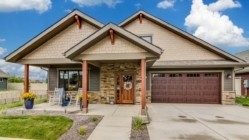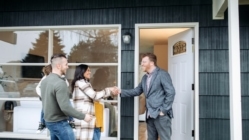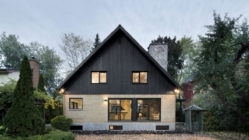
Embarking on the journey to homeownership can be both exciting and overwhelming, especially when it comes to figuring out the financial details. One of the most frequently asked questions by first-time homebuyers is, “How much should my house down payment be?” It’s a crucial question that will shape your mortgage, your monthly payments, and your financial stability for years to come.
In this comprehensive guide, we’ll explore the ins and outs of down payments, unravel the factors that influence how much you should put down, and help you make the best decisions for your unique situation.
What is a House Down Payment?
A house down payment is the portion of the home’s purchase price that you pay at closing. This initial payment is expressed as a percentage of the total home price. It’s your first equity stake in the property, and it plays a significant role in shaping your homebuying journey.
The size of your down payment influences several key factors:
- Loan Amount: The larger your down payment, the smaller your mortgage loan will be. This can make your monthly payments more manageable and reduce the amount of interest you’ll pay over the life of the loan.
- Interest Rate: Lenders often offer lower interest rates to borrowers who make a larger down payment, as it reduces their risk.
- Private Mortgage Insurance (PMI): If you make a down payment that’s less than 20% of the home price, you’ll typically need to pay for PMI. This insurance protects the lender if you default on your loan.
- Home Equity: Your down payment is the first step towards building equity in your home. Equity is the portion of the property that you truly own, and it grows as you pay down your mortgage and as the property value appreciates.
In essence, the house down payment is your initial investment in your home. It’s a critical part of the homebuying process, and understanding how it works can help you make informed decisions as you embark on your journey to homeownership.
If you have any questions or if you’d like to explore your down payment options, the team at JVM Lending is always here to help.
What’s the Average Down Payment on a House?
According to recent data, the average house down payment is 6% to 10% of the purchase price. So, if you’re buying a $300,000 house, the average down payment would range from $18,000 to $30,000. These figures give you a much more realistic starting point, don’t they?
How Much for a Down Payment on a House?
Down payment requirements vary based on loan types, price point, property type, and more. A larger down payment typically results in lower monthly payments.
It’s also important to remember that there are plenty of options for those who can’t afford a large down payment. For example, Conventional loans can allow as little as 3% down, FHA loans can allow down payments as low as 3.5%, and VA loans may even allow a 0% down payment for qualified veterans.
Is it Always Best to Make a Larger Down Payment?
Not necessarily. While it’s true that a larger down payment can lower your monthly mortgage payments, it’s important to consider your overall financial health. Tying up most of your savings in your home could leave you unprepared for unexpected expenses or changes in your income. It’s crucial to maintain a balanced approach to your finances, keeping an emergency fund and planning for your future needs.
Talking to a mortgage expert at JVM Lending can help you have a more complete picture of your finances and home budget, and ultimately help you hone in on your ideal down payment amount.
View mortgage rates for
April 19, 2024
How Much Down Payment for a 300k House?
Let’s dive into three different down payment scenarios for a $300,000 house and analyze the financial implications of each. Keep in mind, these are hypothetical scenarios and the actual costs can vary based on factors like your credit score, loan term, and interest rates.
Scenario #1: 20% Down Payment = $60,000
This is the traditional down payment amount. With a 20% down payment, you wouldn’t have to pay for Private Mortgage Insurance (PMI), which can typically range from 0.5% to 1% of the entire loan amount annually. This means you’d save between $1,200 to $2,400 per year, or $100 to $200 per month, on PMI costs. Your mortgage payments would also be lower since you’re financing a smaller loan amount. However, this scenario requires a significant amount of cash upfront.
Scenario #2: 10% Down Payment = $30,000
A lower down payment means you’ll have to finance more of the home’s cost, leading to higher monthly mortgage payments. Additionally, you’ll likely have to pay PMI, adding to the monthly cost. However, this scenario requires less cash upfront, which could be beneficial if you’re having trouble saving for a larger down payment or if you want to keep more cash on hand for other expenses or investments.
Scenario #3: 3.5% Down Payment = $10,500
This is the minimum down payment required for an FHA loan, which is a popular choice among first-time homebuyers. This scenario requires the least amount of cash upfront, but it will lead to the highest monthly mortgage payments of the three scenarios. You’d also have to pay monthly mortgage insurance, and FHA loans come with an additional upfront mortgage insurance premium (UFMIP) of 1.75% of the loan amount. This UFMIP can be financed into the loan amount and does not need to be paid in cash at closing.
How Can I Save for a Down Payment?
There are many ways to save, and it often comes down to your personal budgeting and saving habits. Consider setting aside a certain amount from each paycheck, reducing unnecessary expenses, or even investing in a high-yield savings account.
Also, don’t forget about potential sources of down payment assistance, such as gifts from family or grants and loans from nonprofit organizations and government agencies.
Frequently Asked Questions
Is a 20% down payment always necessary when buying a house?
No, a 20% down payment isn’t always necessary. While it’s a common benchmark because it often allows you to avoid paying private mortgage insurance (PMI), there are many loan programs that allow for lower down payments.
Can I use gifted money for my down payment?
Yes, you can! Many first-time homebuyers receive part or all of their down payment as a gift from family. However, it’s important to note that there may be specific rules or requirements you have to follow. For instance, your lender may need a gift letter from the person giving the gift, stating that the money is indeed a gift and not a loan. FHA loans require a copy of the donor’s bank statement to show available funds in addition to a signed gift letter.
What is private mortgage insurance (PMI), and why might I have to pay it?
PMI is a type of insurance that lenders may require you to pay if you make a down payment that’s less than 20% of the home’s purchase price. It’s a way for lenders to protect themselves in case you default on your loan. PMI can add to your monthly housing costs, but it’s not permanent – it typically ends once you’ve built up 20% equity in your home.
The Bottom Line
In conclusion, the down payment amount that’s right for you depends on your financial situation and long-term goals.
- A larger down payment will lead to lower monthly payments and save you money in the long term, but it requires more cash upfront.
- A smaller down payment will be easier on your current savings, but it will lead to higher monthly payments and potentially more costs over time.
As always, it’s important to consult with a mortgage professional to understand all your options and choose the one that’s best for you. At JVM Lending, we’re here to help guide you through this process and answer any questions you may have.
Getting Started: Apply with JVM Lending
At JVM Lending, we specialize in helping first-time homebuyers like you navigate the complexities of mortgages and down payments. We understand that every financial situation is unique, and we’re committed to finding the solution that best suits your needs.
We’re not just here to help you get a mortgage – we’re here to help you understand the process, make informed decisions, and ultimately, make your dream of homeownership a reality. Reach out to JVM Lending today at (855) 855-4491 and let’s start unlocking the door to your first home together.
























